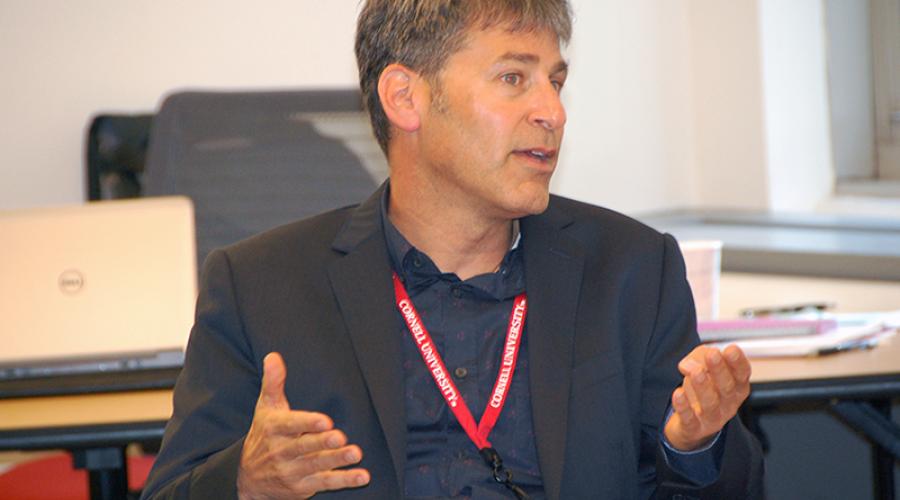
New Conversations Project: 1st Advisory Board Meeting
At the first meeting of ILR’s New Conversations Project about improving labor standards for workers who make products distributed globally, advisory members repeatedly returned to the fact they are working on a complicated issue.
Governments, non-government organizations, workers, manufacturers and suppliers are some of the stakeholders who have been unable to significantly improve apparel industry labor standards, despite 20 years of attempts, advisers said.
“The time is right” to move forward with a research-based, multi-stakeholder organization, said Bruce Raynor ’72, board chairman and a former president of Workers United, UNITE and UNITE HERE.
“Monitoring hasn’t worked; agitation by unions and activists hasn’t worked,” he said.
A sense of moral obligation has grown on behalf of the workers who make garments that clothe people around the world, Raynor said.
Domestic efforts to increase the minimum wage and address erratic work scheduling, along with the Trans-Pacific Partnership, give the issue “a new prominence,” he said.
“There is enough goodwill to get stuff done,” Raynor said at the meeting, held this fall in the ILR New York City Conference Center.
“I don’t think we’re going to get to the top of the mountain quickly, but we can make strides.”
“We have the right mix,” he said, referring to board members from diverse backgrounds on the New Conversations Project: Sustainable Labor Practices in Global Supply Chains, which began earlier this year. All the way from corporations to labor leaders and NGO’s.
Lack of safety standard compliance and lack of governance have been cited as factors leading to the Rana Plaza tragedy in Bangladesh. The building’s collapse killed 1,129 people.
Most of the victims worked in factories in the Rana Plaza and were making clothes for brands such as Walmart and The Children’s Place. It is the deadliest accident in garment industry history.
Advisory board member Jonathan Jacoby said, “It was the most tragic workplace accident in a generation.”
Representing Oxfam International, he agreed that the time is right to engage diverse perspectives in an effort to improve protections for global supply chain workers.
There are many parallels with food sustainability issues, where consumers are placing scrutiny on where products are sourced, and that is also conducive to the New Conversations Project, he said.
“Millennials check labels. They want hyper-transparency. They want to know where it came from and how it is made and are the workers treated well.”
Conscientious consumption has allowed the sustainability field to reinvent itself and to do more in the labor standards arena, Jacoby said.
Gap Inc., which works with 1,000 suppliers in 40-plus nations, has been working on labor issues for many years, said Dan Briskin, vice president of human resources for the company and a board member.
Finding ways to financially motivate suppliers – rather than asking suppliers to be charitable to workers – is key, he said.
“Charity doesn’t work. It breaks down the first time profits go down. It has to be commercially viable. There has to be a financial incentive.”
Harry Katz, former ILR dean and the school’s Jack Sheinkman Professor of Collective Bargaining, said that the automotive industry 20 years ago overcame some of the same issues facing the apparel industry.
Lean manufacturing best practices were the product of a similarly complex project, Katz said.
The group agreed to select a research project that would anchor its next actions.
Professor Sarosh Kuruvilla, the project’s academic director, taught a new ILR course about sustainable global labor practices to 18 undergraduate and graduate students this semester.
He plans to involve students and faculty in the project’s next steps, which could include looking at labor practice issues from supplier perspectives to understand how suppliers work with brands.


